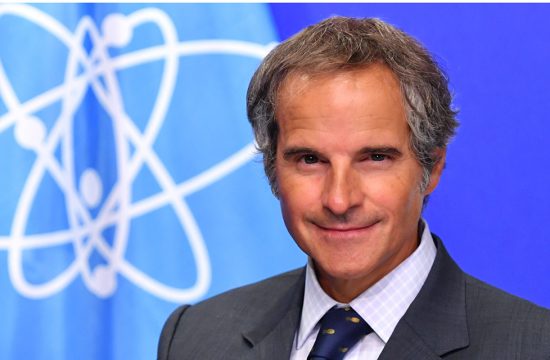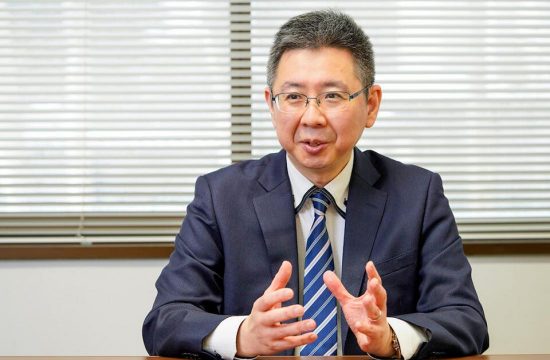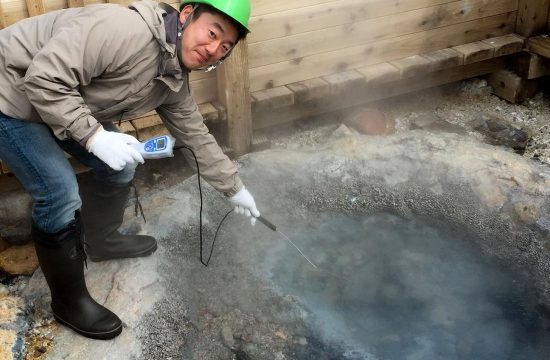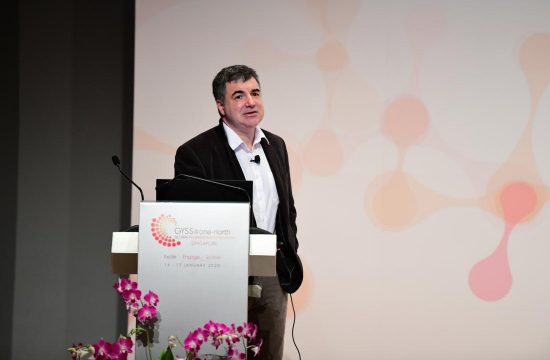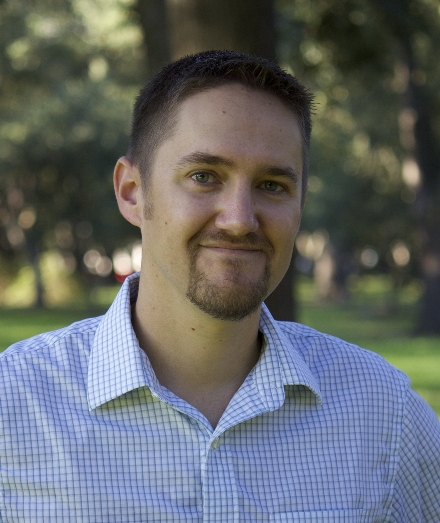Prof. NicoleMoreau is an eminent scientist in today’s chemistry. She became the first women president of International Union of Pure and Applied Chemistry (IUPAC). She was born in France and gained her MS, Physical Chemistry, at University of Paris la Sorbonne. Then she went to Switzerland for her post doctorate on Inter-domain zymology and microbiology. She came back to Paris and started to do job in National Academy of Chemistry. She is interested in useful chemistry, she said.She received her D.Sc. degree, on domain of naturalsubstancesat University Paris 11, Orsay.
She worked in different institutions such as Ecole Polytechnique, Paris – 0rsay University, Medical Microbiology Institute, Genève, Ecole Normale Supérieure, Paris, CNRS Research Centre in Applied Organic Chemistry,Thiais, Laboratory of Molecular Research on Antibiotics, University Paris 6 / INSERM – CNRS Laboratory of Biochemistry etc. She worked at the CNRS (Centre National de la Recherche Scientifique) as deputy Director of the Chemistry Department until 2005, then as full Professor at the University Paris 6, where she was In-charge of teaching at the interface chemistry-life sciences at the EcoleNationale Supérieure de Chimie. Her more recent interest is for natural products, and screening for molecules with antibacterial activity.
Prof. Moreau visited Nepal some time ago attending Kathmandu Symposium of Advanced Materials 2012 (KaSAM 2012), May 9-12, 2012. Meanwhile the Managing Director of RevoScience Laxman Dangol had a privilege to record an exclusive interview with the immediate Past President of the IUPAC.
What are the main goals to establishment of IUPAC?
IUPAC was established before the First World War to make common names for chemistry. In the beginning, it is logical in science that they had formed chemical Society, then afterwards the International Union of Pure and Applied Chemistry (IUPAC). IUPAC addresses international issues in the chemical sciences utilizing expert volunteers from its member countries. IUPAC provides leadership, facilitation, and encouragement of chemistry and promotes the norms, values, standards, and ethics of science and the free exchange of scientific information. IUPAC effectively contributes to the worldwide understanding and application of the chemical sciences, to the betterment of the human living conditions.
How would IUPAC advance the worldwide role of chemistry for the benefit of Mankind?
First, by creating the language, it is also important in industries. If you are working in chemistry, it is important to have common discussion. At the ancient time, the name of chemical compound was different, some of them are in English, French, German, Latin, et cetera. IUPAC is important for all and decided to make common name through IUPAC.
What are the further plans of IUPAC?
Last year, we successfully organized International Year of Chemistry 2012 (IYC-2012). We wanted to do that because chemistry is very important for all and to include young chemists from different countries in IUPAC. We know image of chemistry is very bad because many people think that it causes problem in environment, but I don’t know even in Nepal…; In the other countries, people say because of chemistry, there is environmental problem. Due to the progress in science and chemistry, we have antibiotics etc. We wanted to popularize chemistry and its contribution in the betterment of the life of the people. That was the reason why we organized IYC. So, it was great success. Also in Nepal POLYCHAR 19 International Conference was organized as a part of IYC. Further, we want to work to bring IUPAC activities and contributions of Chemistry to the society. So we plan to go on with culture to teaching chemistry to public and accept them because it is very important to people and country.
In KaSAM 2012, the meeting is excellent with several presentations are related to Bamboos chemistry and applications, so that chemistry is more important and interesting. So, we plan more and more county participate in IUPAC because the more we are, the more chance we will have involved in chemistry. You see, IUPAC has not too much money because money comes from the country, people, and chemical industries where they pay income tax to the country in France, Germany etc. So people pay maximum money whose income is high, in many countries, they would pay minimum because their income is low. Therefore, we can’t help every young people to participate in the IUPAC, but it is important to help young people, chemistry is useful to the people, society, and country. Chemistry is really a global adventure for all the countries are able to participate in IUPAC. That’s why, I told Dr. Ram Adhikari, if possible, to please become a member of IUPAC. That will be very good to you, very rapidly you will be able to gain money to grow programs.
How IUPAC helps to develop the underdeveloped country like Nepal?
First, belong to IUPAC becoming a member, organizationally, or individually. It means to be a member of very large community of high-level chemists because we have several Nobel Prize winners, who are the members of IUPAC. If you need advice from those people you can simply ask them. We have research activities about education, we have educational committee and we can organize conferences, educate about chemistry, it is very important.
We can help young people, we can distribute prizes to young people, we have IUPAC prizes for young chemists, for better PhD and we have other prizes for poster, book, etc. I think, we respect membership for the country, and you have to use that. It is very useful to young people..
What are the basic criterions for IUPAC sponsorships?
Oh! We sponsor high quality international meetings, symposia and conferences like this one (KaSAM 2012) but you can’t do conferences only between Nepal and India. That’s all.
There should be speakers and participants from all over the world. Of course, not only the speakers from Latin America, you have speakers from USA, Asia, Europe etc. It is also important that the scientific level of the conference is very high.
In your view, what kind of things could we have on the focus of our scientific researches in Nepal? Moreover, is there any possibilities of Nepalese emerging scientist will involve in research activities?
I think, some of the chemistry equipments are very expensive. To buy some equipment such as Fourier Transform Infrared spectrometer, it is not very economical. Therefore, it is worth finding collaborations. These kinds of conferences are excellent forums to find such contacts.
As I told you, your brain is same everywhere, so you are able to understand things everywhere and perform less expensive chemistry works. It is not mandatory to do work that is more expensive; do less expensive work and collaborate. And do the work less expensive one, which is preferable to you and your country. As I told you, the works on Bamboo and similar natural stuff is rather interesting and promising. These areas are better than the others. You know, you have a great diversity and I suppose; you can do the natural product chemistry, which could be interesting! I saw, Prof. Mangala Devi Manandhar had worked in the natural products. I think, an idea comes from nature so it is good to research in natural products. As I think, it is good way for you because you can choose the plants and extract it for not very expensive. Then, you can get money and can buy equipments and develop further research activities in Nepal.
What lessons did you learn from this seminar?
I had no idea before what was done in Nepal but I can confess for never making a vacation in this country. It is a great experience to be here.
Now, I see that they are working more on biochemistry and polymer as well. My work is in enzyme not in bamboo and polymers. So, I discovered that this country’s polymer chemistry is at least very high level because there were many excellent lectures given by scientists from Nepal and India. I discovered, in this country chemistry is not so small, that many students are learning chemistry. Here is future of chemistry, of course. It is difficult to make a way but, I think, young people are able to do that. It is important, if you are going to make PhD or post doctorate in foreign country, it is good to try to come back to your Country. Brain drain, it’s good for other countries but not for Nepal. For them, it is nice to have well educated and motivated chemists without any efforts. When you have brilliant post doc, try to keep them in the country. If you are doing research in foreign country, as I told you, please come back to the country and develop your chemical education and research.
Finally, would you like to say something to Nepalese people through RevoScience ?
A message to Nepalese people; of course, I have a few words to say. Nepal is a very interesting country. It was very interesting to see people still working in agriculture; they are farming corn, lentils, peas etc. It has been an amazing experience for us. Natural beauty in terms of clothes, colors, culture and geography is very impressive.
Also found very sad when I saw the wastes thrown into the river. Why do not we make a proper place for the wastes? Another thing, when I saw children bathing in the downstream in the dirty river, it was shocking experience. It’s important that young people have energy to do the waste management. It is also not expensive to do. The solution to this problem will make your country looking more beautiful.


